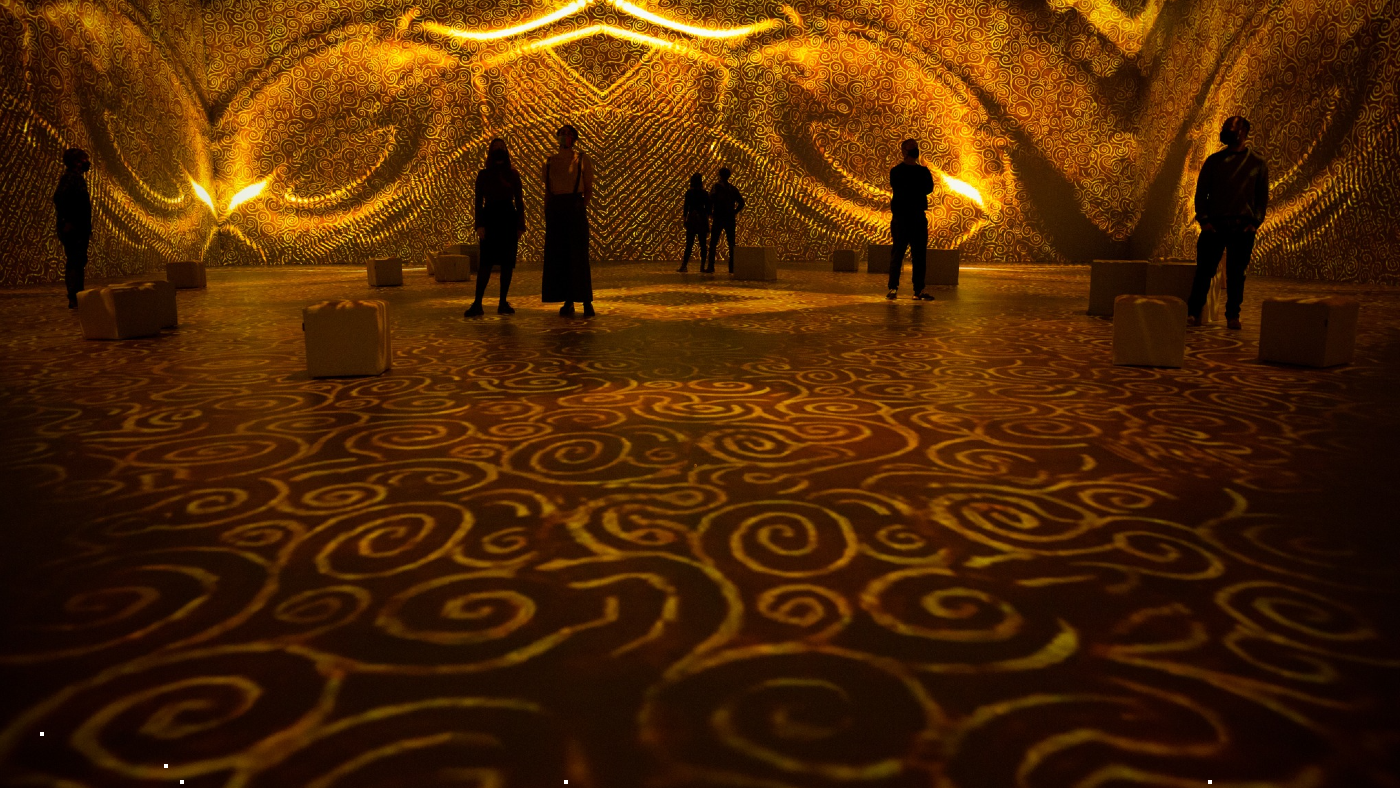Klimt: The Immersive Experience – little more than a ‘kaleidoscope of digital reproductions’
Organisers claim this show ‘democratises’ great art and makes it ‘accessible’

A free daily email with the biggest news stories of the day – and the best features from TheWeek.com
You are now subscribed
Your newsletter sign-up was successful
In the past decade, British art lovers have been invited to take part in a new kind of spectacle, said Hettie O’Brien in The Guardian: the “immersive experience”. Broadly speaking, this amounts to a form of “installation art that uses technology such as augmented and virtual reality to ‘immerse’ viewers, merging the physical world with digital experience”.
Such events “vary hugely in scope” – from “elaborate, hi-tech” affairs using holograms or VR headsets to simpler, “Instagram-friendly” projections of paintings by deceased artists. Because immersive installations don’t rely on “rare” physical objects, “they can be reproduced on an almost industrial scale” in multiple locations anywhere in the world: the idea is that people are able see world-class art without leaving their home towns.
If you want to experience one of these installations for yourself, a new one devoted to the paintings of Gustav Klimt has recently opened in East London. Its organisers claim that the show is designed to “democratise” great art and make it “accessible”.
The Week
Escape your echo chamber. Get the facts behind the news, plus analysis from multiple perspectives.

Sign up for The Week's Free Newsletters
From our morning news briefing to a weekly Good News Newsletter, get the best of The Week delivered directly to your inbox.
From our morning news briefing to a weekly Good News Newsletter, get the best of The Week delivered directly to your inbox.
The Experience starts “conventionally and unobjectionably” in a corridor, said Rupert Christiansen in The Daily Telegraph, where information panels explain Klimt’s life and stylistic development; visitors then proceed “to a high-ceilinged central chamber”, where, for about 30 minutes, details from his works, including The Kiss and Portrait of Adele Bloch-Bauer, are projected onto the walls along with “a lot of amoebic squiggles and evanescent starbursts”.
If you’re so minded, you can, for an extra £5, then don a VR headset and spend another ten minutes gazing at “more of the same”, but with yet more “gimmicky deconstructions” of the artist’s stylistic tics. And that’s about it.
It’s “easy to be snobbish” about entertainments of this sort – but it’s the sheer poverty of the experience that troubles me. For all the talk of cutting-edge tech, it amounts to little more than a “kaleidoscope of digital reproductions” of famous Klimt paintings, reminiscent of the light shows that artists were experimenting with as long ago as the 1960s.
Immersive experiences aren’t intrinsically meritless, said Laura Freeman in The Times. Elsewhere in London, a Frida Kahlo show “does something genuinely original” with its source material. But alas, what we have here is merely a cynical exercise in parting punters from their cash: a family ticket, for two adults and two children, will set you back no less than £67.60 – and for a package that includes the VR headsets and a “free” poster, this rises to £130.60; the online booking fees are “a punchline to an already bad joke”.
A free daily email with the biggest news stories of the day – and the best features from TheWeek.com
And what do you get for all that dosh: “I’ve had screensavers more watchable” than the “squiffy and out-of-focus” projections here. If you’re scouting around for an enjoyable cultural outing with the children this summer, avoid this “rum” deal like the plague.
The Boiler House, London E1 (klimtexpo.com). Until 30 September